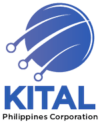Voice over internet protocol (VoIP) is a type of technology that allows you to make and receive telephone calls using an internet connection instead of a traditional phone line. VoIP works by converting your voice into digital data that can be transmitted over the internet.
There are several different types of VoIP systems available, each with its own set of features and benefits. The most popular type of VoIP system is known as IP telephony, which uses your existing broadband internet connection to place and receive calls. Another type of VoIP system is known as hosted VoIP, which uses a third-party provider to host your VoIP service.
Why Use a VoIP?
One of the main benefits of using VoIP is that it can save you money on your monthly phone bill. The different types of VoIP systems are often much cheaper to use than traditional phone lines, and they offer a variety of features that can save you even more money. For example, many VoIP providers offer free calls to other members of their network, and some even offer free long-distance and international calling.
In addition to saving money, VoIP systems also offer a number of other benefits. For instance, VoIP systems are much more flexible than traditional phone lines, and they can be easily scaled to meet the changing needs of your business. Additionally, VoIP phone services tend to be more reliable than traditional phone lines, and they offer enhanced security features that can protect your data and conversations from eavesdropping.
What are the types of VoIP phones?
1. Desktop VoIP
Desktop VoIP systems are installed on your computer and use your internet connection to place and receive calls. Desktop VoIP systems typically come with a headset that plugs into your computer, and they may also include a software application that lets you manage your calls and contacts.
Advantages:
- Can be used with any broadband internet connection
- Offers a variety of features, including caller ID, call waiting, voicemail, and call forwarding
- Can be easily integrated with other business applications, such as customer relationship management (CRM) software
Drawbacks:
- May require additional hardware, such as a microphone and speakers
- May not be compatible with all types of computers
2. Softphone VoIP
Softphone VoIP is another type of VoIP system that uses software applications that let you place and receive calls using your internet connection. Softphone VoIP systems typically come with a headset that plugs into your computer, and they may also include a software application that lets you manage your calls and contacts.
Advantages:
- Can be used with any broadband internet connection
- Offers a variety of features, including caller ID, call waiting, voicemail, and call forwarding
- Can be easily integrated with other business applications, such as customer relationship management (CRM) software
Drawbacks:
- May require additional hardware, such as a microphone and speakers
- May not be compatible with all types of computers
3. Mobile VoIP
Mobile VoIP systems are software applications that let you place and receive calls using your Internet-connected mobile device. Mobile VoIP systems typically come with a headset that plugs into your phone, and they may also include a software application that lets you manage your calls and contacts.
Advantages:
- Can be used with any broadband internet connection
- Offers a variety of features, including caller ID, call waiting, voicemail, and call forwarding
- Can be easily integrated with other business applications, such as customer relationship management (CRM) software
Drawbacks:
- May require additional hardware, such as a microphone and speakers
- May not be compatible with all types of mobile devices
What are the types of VoIP systems?
1. Hosted VoIP
A hosted VoIP system is a cloud-based VoIP system that is managed by a third-party provider. Hosted VoIP systems are typically much cheaper to use than traditional phone lines, and they offer a variety of features that can save you even more money. For example, many VoIP providers offer free calls to other members of their network, and some even offer free long-distance and international calling.
Advantages:
- Can be used with any broadband internet connection
- Offers a variety of features, including caller ID, call waiting, voicemail, and call forwarding
- Can be easily integrated with other business applications, such as customer relationship management (CRM) software
- Typically, much cheaper to use than traditional phone lines
Drawbacks:
- May require additional hardware, such as a microphone and speakers
- May not be compatible with all types of computers
2. On-Premises VoIP
An on-premises VoIP system is a VoIP system that is installed and managed on your own premises. On-premises VoIP systems are typically more expensive to use than cloud-based VoIP systems, but they offer more control and flexibility. For example, on-premises VoIP systems can be easily integrated with other business applications, such as customer relationship management (CRM) software.
Advantages:
- Can be used with any broadband internet connection
- Offers a variety of features, including caller ID, call waiting, voicemail, and call forwarding
- Can be easily integrated with other business applications, such as customer relationship management (CRM) software
- Offers more flexibility and control
Drawbacks:
- May require additional hardware, such as a microphone and speakers
- May not be compatible with all types of computers
- Typically, more expensive to use than cloud-based VoIP systems
3. Hybrid VOIP systems
A hybrid VoIP system is a type of VoIP phone system that uses both cloud-based and on-premises VoIP technology. Hybrid VoIP systems offer the best of both worlds, providing the flexibility and control of an on-premises system with the cost savings of a cloud-based system.
Advantages:
- Can be used with any broadband internet connection
- Offers a variety of features, including caller ID, call waiting, voicemail, and call forwarding
- Can be easily integrated with other business applications, such as customer relationship management (CRM) software
- Provides the flexibility and control of an on-premises system with the cost savings of a cloud-based system
Drawbacks:
- May require additional hardware, such as a microphone and speakers
- May not be compatible with all types of computers
- Typically, more expensive to use than cloud-based VoIP systems
- Can be more expensive to use than pure cloud-based or on-premises VoIP systems
The different types of VoIP phones and phone systems can save you money on your monthly phone bill, as well as provide additional features that can be beneficial for your business. In addition, VoIP systems are typically much easier to install and manage than traditional phone lines.
If you’re looking to expand your network of clients by offering them state-of-the-art VoIP getaway devices and products, join the Kital Partner Reseller Program today!




